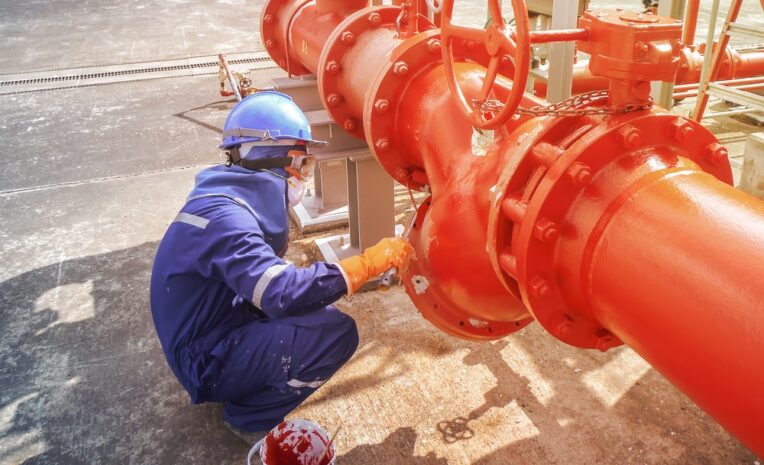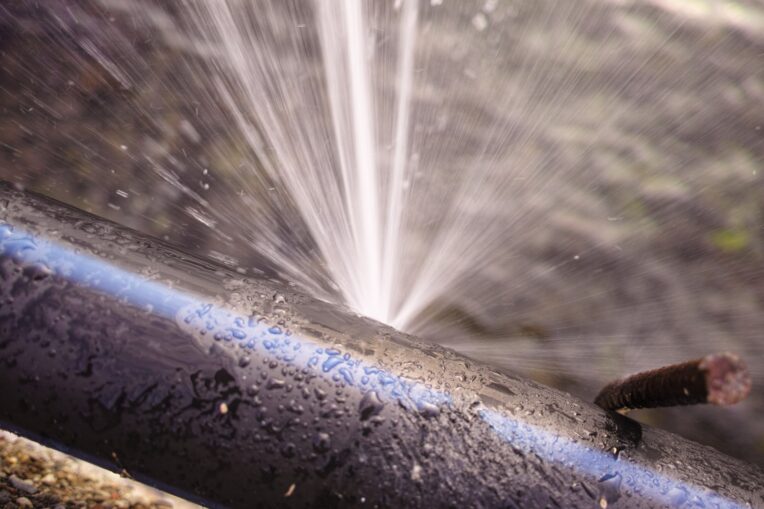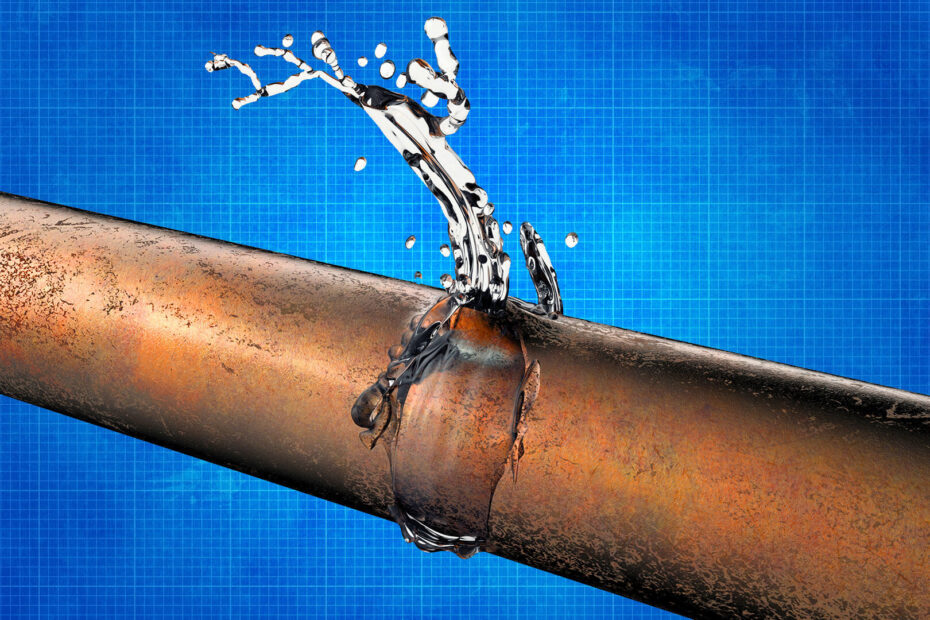A pipe can burst at any time, which is something nobody wants to consider. If you’re very fortunate, it will be during the hours that your local plumber is open, and they will be able to accommodate you into their schedule – after-hours or emergency calls usually nearly cost more than regularly planned appointments.
What choices do you have if your pipes leak early on the weekend? Attempting a last-minute repair on your own is one alternative. It is hoped that the following techniques may stop the leak temporarily, keep your water on, and give you time to schedule a plumber’s visit for a permanent fix.
Contents
1. Use Plumbers Tape

The waterproof seals in the pipe threads may be worn out or no longer functional if the place where the pipes join continues to leak after you have tightened the coupling nut. In an emergency, a plumber’s tape works well as a sealant to stop leaks. It can be used to repair leaky pipes on threads and fittings because of how simple it is to apply and how flexible the material is.
- Remove the connection nut holding the P trap to the sink drain pipeline. The P trap should be removed from the draining pipe when the other coupling nut loosened.
- Wrap a section of plumbers tape around the pipe’s threads following the manufacturer’s directions.
- Reposition the P trap so that it is in line with the draining pipeline, then tighten the coupling nut to join the pipes. Squeeze the coupling nuts firmly.
- To see if the seal is still intact, running water.
You can find here the best emergency plumbing needs.
2. Use Epoxy Putty
Fix a leaky pipeline temporarily by using epoxy putty or plumbing putty. To seal the hole or crack, plumbing putty is made to solidify at room temperature.
- Disconnect the house’s water supply line.
- For the epoxy putty to adhere to the pipeline correctly, drain the damaged line and ensure the area needs to be cleaned and dried.
- To completely cover the area around the leak, remove enough plumbing epoxy putty by tearing it off.
- Make the putty more malleable before applying it.
- To the pipe, apply the putty.
- Turn on the water flow and look for leaks when the putty has thoroughly dried in accordance with the manufacturer’s recommendations.
3. Use Repair Clamp

For temporary plumbing repairs on more significant ruptures, use repair clamps and a patch made of neoprene rubber. For instructions on using a clamp and patch to repair a leaky pipeline joint, see below:
- Stop the flow of water to the leaking pipes and clean the vicinity of the hole that needs to be mended.
- Any sharp edges that might pierce the patch should be filed down with a metal file.
- By evenly overlapping the broken pipeline part, apply the patch and repair the clamp.
- A leak can be stopped by tightening the clamps.
- Check for leaks while the water supply is running.
Why Your Pipes Might Burst?

Several factors, including weather, environmental changes, and others, can cause pipes to rupture. A few typical causes of lines failing are listed below:
Metal pipes are susceptible to corrosion from ongoing exposure. Metal plumbing pipes can rust over time, weakening pipeline walls, couplings, and seals. Tiny cracks form in the lines due to this corrosion, which might eventually cause a total rupture.
Corrosion can be identified in pipes by discoloration or warping. Another typical indication of rusty plumbing is yellow or brownish water pouring out of your faucets. It’s time to call a plumber to investigate the situation if you see discoloration, warping, or discolored water in your pipes.
- External Pressure
Pressure from the outside can occasionally be applied to water pipelines. Most of the time, pressure on pipes buried in the ground can come from tree roots, passing vehicles, or even machinery excavating the earth. Typically, such pressure pushes the lines past their structural limits. Pipes either fracture or burst under pressure, causing leaks. Sometimes, finding such underground leaks can be a difficult task that can only be accomplished by a skilled plumber who can quickly fix ruptured copper pipes.
- Excessive Water Pressure
A specific amount of water pressure is what water pipes are made to withstand. Technical specifications that specify the precise degree of such pressure are often written on each pipe. Sometimes, especially when more water is pumped via a pipe, the water pressure limits can be exceeded. This frequently happens when a small pipeline is utilized to supply more water, which necessitates applying more pressure to the water pump. Such high water pressure can cause the pipeline to rupture since it can no longer resist the stress abruptly.
- Incorrect Pipework
A qualified plumber who is licensed, experienced, and knowledgeable in plumbing should complete the pipework and plumbing connections. When such duct layering is carried out by individuals without the necessary technical understanding, problems might happen, mainly when the water pressure used in the pipes is misapplied. Excessive pressure can weaken the pipe’s structural integrity and cause it to burst, as in cases where a larger line, for example, is connected to smaller ducts of less thickness.
- Clogs
Though individuals have been more careful in recent years about what they flush down the toilet, blockages continue to be one of the main causes of pipes bursting. Almost anything, including hair, grime, and toilet paper, can be used to create them. What causes the obstruction is not that important.
What matters is that a clog can accumulate over time until the pressure becomes unbearable, at which point you’ll have to deal with a burst pipeline in addition to a pile of unpleasant sludge flushed down the drains.

Conclusion
It’s crucial to respond swiftly to reduce damage if a pipeline bursts in your home. Turning off the main water supply to your house is the first step. Turn off any electrical devices close to the leak if it’s safe. If you can, remove any personal property and clean up any extra water. And, of course, make an immediate call for expert assistance.
Plumbing and soldering expertise, together with the appropriate equipment, is needed to fix a burst pipe. The best method to guarantee timely and correct repairs is to hire a skilled plumber.
